We now know more about our impact on the environment than ever before; and because of that, we know just how important it is that we act immediately to preserve the planet that sustains us. But while this is a pivotal moment in environmental history, it’s far from the first time we’ve wrestled with these problems. The environmental movement goes back decades, and the naturalist movement further than that.
We can trace the movement through its books–from classics like Rachel Carson’s landmark Silent Spring to modern texts like The Sixth Extinction. And we can see the same themes in fiction, particularly in the science fiction and horror genres—sometimes acting as a warning of things to come if we don’t change our ways. In the collection of Earth Day books below, you’ll find important and compelling fiction and non-fiction books with an environmental message.
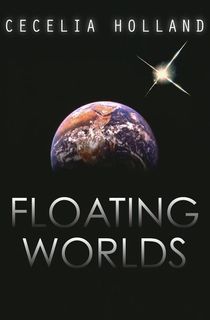
Floating Worlds
In Floating Worlds, the environment’s deterioration caused by human impact has reached a futuristic extreme. Thanks to overpopulation, humans now live in “biodomes,” and humanity has been compelled to reach new planets. But running away from a ruined earth isn’t a solution, and a new and dangerous breed of humans have evolved at the fringes of our solar system.
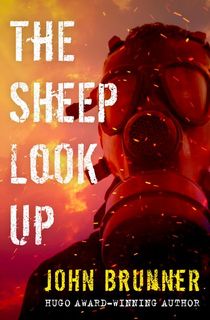
The Sheep Look Up
Brunner’s 1970s science fiction novel envisions a post-apocalyptic future in which city pollution has reached an unbearable point. Environmental destruction runs rampant, but it’s humanity that ultimately endangers itself as civil unrest spreads across the country.
RELATED: 8 Freaky Depictions from Dystopian Novels that Have Come True
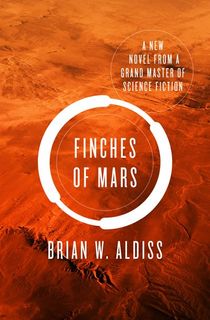
Finches of Mars
In Finches of Mars, Earth’s environment has so deteriorated that a Martian colony seems to be our species' last hope. But even in the stars, humanity needs Earth–that’s where the food supplies come from. This title was the late Aldiss' last science fiction novel, and it’s a fitting farewell to a genre in which he excelled.
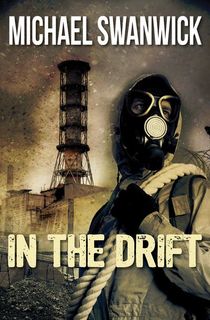
In the Drift
In the Drift is a sci-fi horror novel that plays on the fears of nuclear power. In Swanwick’s novel, the nuclear plant at Three Mile Island–the Pennsylvania site of the United States’ most frightening real-life nuclear meltdown in 1973–has had an even more catastrophic meltdown, creating a terrifying region of mutant monsters and radioactivity known as the Drift.
Humanx Commonwealth Series
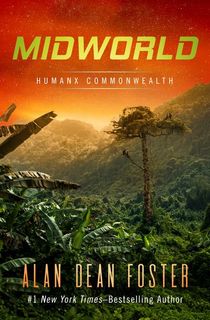
Midworld
In Midworld, Alan Dean Foster conjures up a beautiful rain forest planet with trees half a mile tall. There, humanoids live in harmony with their forested world, bonding with native fauna. But change arrives with businessmen from Earth, who are more interested in exploiting the environment than living within it. The conflict may sound familiar, but the novel is memorable and unique.
RELATED: Books Like Mass Effect

No Turning Back
No ecological event has the same sense of horror and finality as extinction. In his non-fiction book, Ellis examines extinction in the context of planetary history. The book vividly discusses five periods of mass extinction on earth and the variety of ways in which entire species can cease to exist—from massive events like asteroid impacts to subtle things like small changes in temperature.

Oryx and Crake
Nobody does speculative fiction quite like Margaret Atwood. In Oryx and Crake, she turns her attentions to the consequences of a corporatist world. In the novel, we see a post-apocalyptic world—but flashbacks reveal that this is our own planet, which was dominated by corporate and anti-environmental interests at the time of its demise.
RELATED: Margaret Atwood Confirms a Sequel for The Handmaid's Tale

Ecotopia
Ectopia is a utopian novel about a small state that separates from the United States. Set in the then-future year of 1999, Callenbach’s 1970s novel shows the reader the benefits of living in harmony with nature. Ecotopia went on to influence both the American green movement and counterculture of the time.

The Death of Grass
You may know John Christopher from his popular Tripods trilogy for young adults, but this dark post-apocalyptic story shows readers just how quickly things would fall apart for mankind without plants. In The Death of Grass, our crops die—and our sense of humanity doesn’t last much longer.
RELATED: 5 Bizarre Phenomena You Didn't Know Were Side Effects of Climate Change
The Southern Reach Trilogy

Annihilation
In VanderMeer’s Southern Reach trilogy, humanity has lost control of a region known as Area X–and nature has stepped in to take it over. The Southern Reach agency sends expeditions into the wild zone, but nature is a formidable adversary. VanderMeer’s award-winning sci-fi/horror series is about the power of the natural world.
The first in the trilogy, the Nebula Award-winning book Annihilation follows the aftermath of failed expedition after expedition to Area X—all returning with different, but terrifying, results. Now the twelfth expedition is set to take place. Their mission? Map the terrain, observe their surroundings, and leave uncontaminated. But the secrets the expedition members bring into Area X could harm them more than the area itself.

Silent Spring
Silent Spring is perhaps the single most famous environmental book of all time. Carson’s anti-pesticide manifesto was first published way back in 1962, serialized in the New Yorker, but it remains essential to any environmentalist reader. The marine biologist’s works changed the way we think about the environment around us, and even initiated revolutionary changes in laws regarding air, land, and water.

The Sixth Extinction
The world has been rocked by five major mass extinctions in its long history. Now, New Yorker writer Elizabeth Kolbert argues, we’re in the midst of a sixth: One that we, humans, have caused. Everyone from Bill Gates to Barack Obama has recommended The Sixth Extinction, and there’s no time like the present to dive into this compelling work of nonfiction.
RELATED: 5 Likely Ways the Apocalypse Could Happen, According to Science
This post is sponsored by Open Road Media. Thank you for supporting our partners, who make it possible for The Portalist to celebrate the sci-fi and fantasy stories you love.
Featured photo: photoshopper24 / Pixabay






